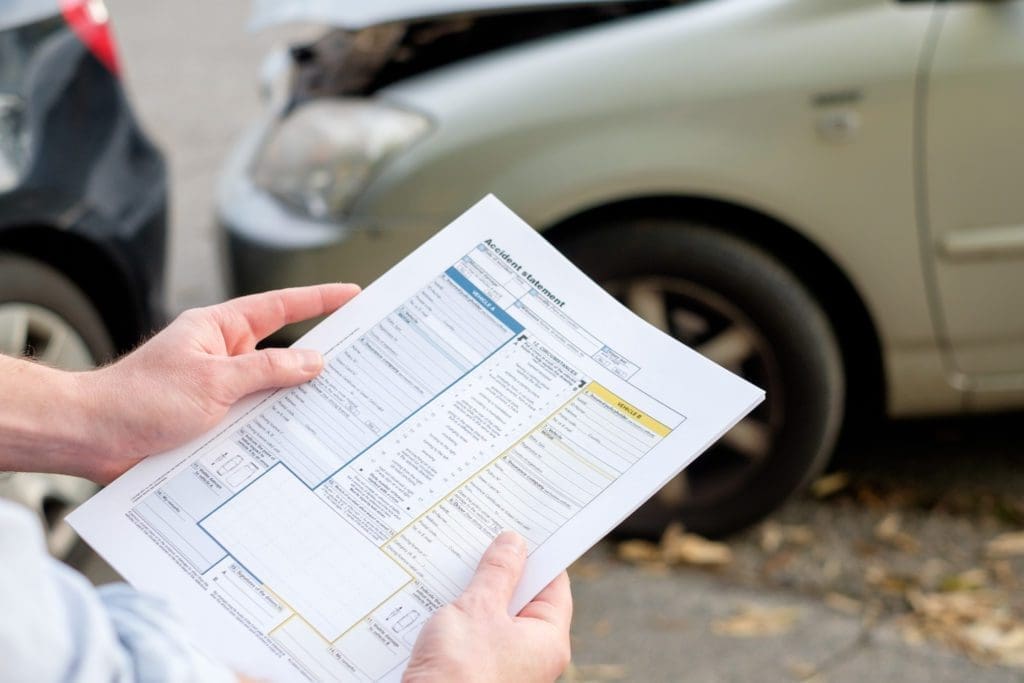When a vehicle is involved in an incident, and sustains damage, it could be deemed ‘beyond economical repair’ by its insurer. Vehicles given this status are often colloquially referred to as ‘write-off’ or ‘total loss’ vehicles.
Here we discuss what happens when a vehicle is deemed beyond safe or economical repair, and consequently ‘written off’ by its insurer.
What does it mean when a vehicle is ‘written off’?
Insurers write off a vehicle when it cannot be repaired to roadworthy condition, either because the damage is too severe, or the cost would outweigh what the vehicle is worth.
When a vehicle is written off, the insurer will usually pay out a sum in the region of it’s estimated value, and the vehicle will be sent for disposal, salvage, or sale.
Are older vehicles more likely to be written off?
Older vehicles have a higher chance of being written off post-incident due to their lower market value. This is because some repairs may be deemed uneconomical if their cost exceeds what the car is worth.
However, greater availability of used parts for these vehicles often makes them cheaper to repair than newer equivalents.
As long as the car is repairable, and these repairs don’t exceed its market value, it should be accepted by your insurer.
What happens to my car if it’s written off?
If your car is ‘written off’ by your insurer, it will either be sent for disposal, salvage, or sale – depending on the severity of damage, and the terms and conditions of your policy.
Your insurer will then pay out a sum in lieu of your car being repaired, usually close or equal to the vehicle’s estimated market value.
Can I keep my car if it’s written off?
You may be able to keep your car if it’s written off – however, this depends on the specifics of your policy, and the state of the vehicle.
If your vehicle falls into damage categories A or B, it must be crushed by a licensed professional. Cars assigned to these categories cannot be re-registered for on-road use, and therefore cannot be retained by their owner.
Can my car be repaired if it’s written off?
UK vehicle damage categories explained

Here are the four key damage categories, and what they mean for the vehicles assigned to them:
Category A – The vehicle is beyond salvage. The shell & all spare parts must be crushed by a licensed agent.
Category B – The vehicle is damaged beyond repair, and must be crushed, but spare parts can be reclaimed. All must be done by a licensed agent.
Category S – Vehicle is structurally damaged, and repair has been deemed uneconomical for insurance purposes. Vehicle may be sold, salvaged, or retained by the owner, and could be restored to roadworthy condition.
Category N – Vehicle is not structurally damaged, but has been deemed beyond economical repair. Vehicle may be sold, salvaged, or retained by the owner, and could be restored to roadworthy condition.
Many insurers send category B, N, and S vehicles to salvage professionals, who will safely reclaim any usable parts as ‘spares’, and sell these into the reclaimed parts market.
What are Total Loss vehicles?
‘Total loss’ and ‘written off’ are often used interchangeably. The term ‘total loss’ is commonly used by insurers, repairers, and salvage companies to refer to beyond-repair vehicles within their stock.
Total loss vehicles for internal ‘green parts’ salvaging
Some insurers and fleets may keep their own total loss vehicles for internal salvage, and use their components to build in-house ‘green parts’ supply chains.
This helps them to cut the cost and turnaround of sourcing parts for future repairs – providing customers with quicker, more cost-effective claims journeys.
It also provides a more sustainable way to dispose of total loss vehicles, ensuring parts are reused where possible rather than being sent to landfill.
Can my car be written off if it’s stolen?
Yes – if your car is stolen, it might be declared a write-off by your insurer, providing you’ve notified them, and enough time has passed to rule out the vehicle being recovered.
The insurer usually has to allow a grace period, allowing time for the vehicle to be recovered, before they can declare it a write-off.
If your vehicle is damaged after being stolen, the same process of weighing up the validity of repair will apply – from both a safety and financial perspective.
Stolen vehicles which are never recovered are denoted as an ‘Actual Total Loss’, whereas stolen vehicles which are recovered, but have sustained irreparable damage in the interim, are referred to as ‘Recovered Theft Total Loss’.
In Summary
When a vehicle is damaged beyond safe or economical repair, its insurer will usually deem it ‘total loss’ – sometimes called a ‘write-off’.
This usually happens if the cost to repair a vehicle outweighs its estimated sale or salvage value, or the damage is too severe to repair safely.
Total loss or ‘write-off’ vehicles will usually be sent for disposal, salvage, or sale – depending on their damage category.
You may be able to keep your car if it’s written off, and have it repaired at your own expense. However, this depends on how severely your vehicle is damaged, and the specifics of your policy.
Write-off vehicles in categories A and B must be crushed by a licensed professional, while categories N and S could be sent for resale, or claimed back by their owner.




